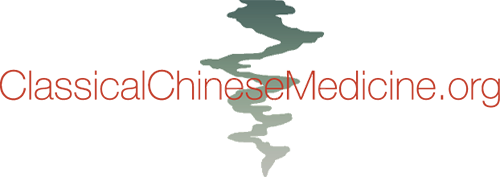Zhang Zhicong (fl. 1619-1674): On Fuzi
BY ZHANG ZHICONG (1610-1674)
TRANSLATED BY HEINER FRUEHAUF
GERMAN TRANSLATION BY MARKUS GOEKE
The flavor of Fuzi is pungent, its qi is warm, and it is extremely toxic. It treats wind cold pathogens that induce coughing and other counterflow issues, wind damp arthritis causing wandering pain and constriction, and knee pain with inability to walk. It breaks up tumors and masses, and heals blood accumulations as well as wounds caused by metal objects. The best Fuzi is produced in Mianzhou in the region of Shu.
